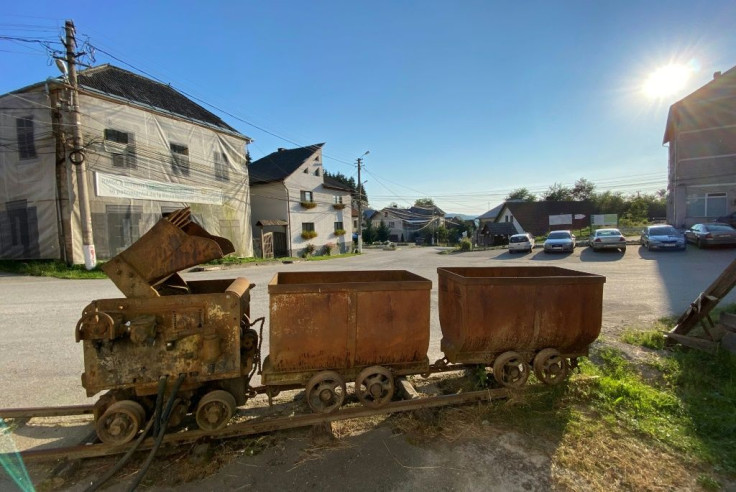Romania Cheers As Gold Mines Get World Heritage Nod
Romania on Tuesday welcomed a decision to add the remains of a Roman mining complex -- threatened by a controversial gold digging project -- to UNESCO's World Heritage List.
Situated in the Apuseni Mountains, part of the Carpathian range, the village of Rosia Montana harbours "the most significant and extensive... Roman gold mining complex currently known in the world", dating from the second century, according to ICOMOS, an advisory body of the UN agency.
Romania has sought to get UNESCO status for the site -- an effort which finally bore fruit and which is expected to further stall a Canadian company's mining project in the area.
President Klaus Iohannis "saluted" the decision, saying that "Rosia Montana must become a model of emphasising the heritage through sustainable development of the area."
"It's the result of 25 years of efforts. Rosia Montana is placed where it belongs," villager Sorin Jurca, 56, told AFP.
"Not everybody embraces this honour, but I know that this is the real way to development," the former miner turned activist said.
The mining village was at the heart of a bitter controversy for more than two decades with the local community split over the gold digging project.
One of the project's biggest supporters, Rosia Montana mayor Eugen Furdui said the decision by UNESCO's World Heritage Committee blocked "Europe's largest gold and silver deposits" for the long term.
"This is a bad decision for the community and the country. It won't bring benefits, only obligations," Furdui told Digi24 TV station.

The seeds of discord were sown in the 1990s when Canada's Gabriel Resources came to Rosia Montana to extract 300 tonnes of gold and 1,600 tonnes of silver, using cyanide.
Its subsidiary, Rosia Montana Gold Corporation (RMGC), in which the Romanian state holds a 20 percent stake, received a mining concession in 1999.
But tens of thousands of people took to the streets in Bucharest in 2013, expressing environmental concerns and putting pressure on the government to withdraw its support.
Unable to get the government's necessary environmental approval, Gabriel Resources is now suing Romania for $4.4 billion (3.7 billion euros) in damages.
A verdict is expected at the end of 2022, but the company also does not rule out launching another legal case over the UNESCO bid.
"The UNESCO application and inscription are fundamentally at odds with Romania's obligations under its investment treaties," the company said in a statement.
It added its "carefully planned, sustainable and modern mining development would have been the best way to safeguard the significant cultural heritage of the Rosia Montana area".
© Copyright AFP {{Year}}. All rights reserved.





















